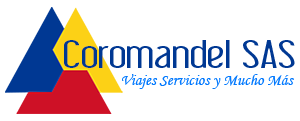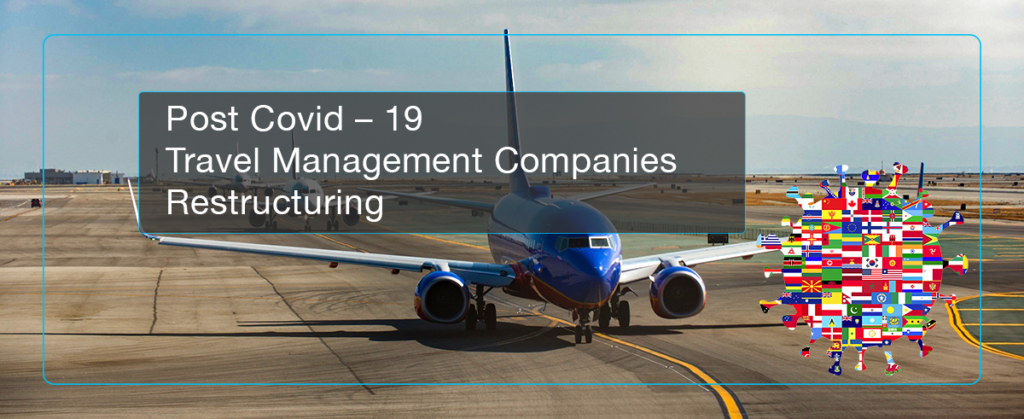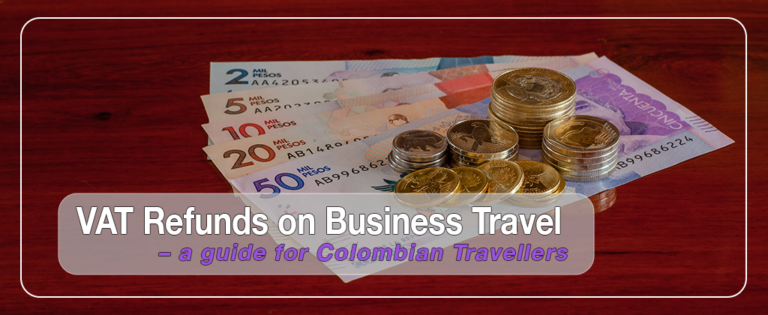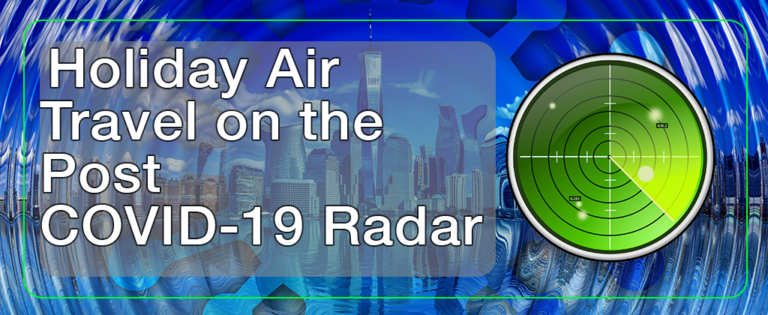The onslaught of Covid-19 has been relentless. Air Travel has taken its mightiest blow ever in the history of post-war Civil Aviation. It created an almost complete lockdown for the Industry in terms of International Travel. The good news is that all of these effects will peak, and eventually when they find the vaccine, disappear. Post Covid-19 challenges will impact Travel Management Companies.
The blow the phenomenon has dealt the Travel Industry and many other businesses around the world, has no parallel. It has already changed the Business completely. Even as Airline heads are looking at a revival on their drawing boards, we know that Covid-19 has changed the face of travel forever.
As Airlines, orchestrate the relaunching of services, Travel Management Companies (TMC), are reviewing everything from staffing upwards. They are studying their operating costs. What will resurface from the depths of the disaster will be a different, more efficient, and cohesive Industry.
Post Covid-19 – Reviewing TMC Operating Costs

Ever since the withdrawal of Airline Commissions, TMCs have had to resort to charging their clients a fee. No fee structure in any service-oriented business will hold unless charges can be justified. Any service provider, anywhere in the world, will be able to charge a fee if they add value to the process chain they are involved in.
Wherever the TMC spends time in providing a service that as a net result, is appreciated by the client, the charged fees will be gladly paid. Several years ago the Travel Agent and all TMCs had to invent their fee structure. They had arrived at their fees just like a professional doctor or a lawyer, would charge his client. Or, had they?
In my personal experience, many clients did not agree that the payment was commensurate with the service they received. Was the client right? The response I would volunteer would be, “Yes and No!” Let me explain: from the TMC perspective, they were perfectly justified; from the client’s point of view, they were not.
This situation led to a constant tussle between client procurement departments and the TMC. At every business review, the clients wanted to drive costs down. They wanted to lower the Transaction Fee. Some TMCs managed that battle well; others found it a major challenge.
The Post Covid-19 Travel Scenario
Reviewing the post-Covid-19 scenario from the TMC perspective, there are critical areas that will need to be modified to stay afloat. These are mainly, Travel Operations, Account Management, and Financial Management Information Reporting. I would like to discuss them with you one by one. Let us start with Travel Operations.
Travel Operations
Travel Operations is manpower intensive; it is the area where a TMC places the bulk of their staff. It is this important area which interacts on a daily basis with client Travel Bookers, and where client bookings come in. They are processed and E-tickets are issued. The post COVID-19 situation will not allow TMCs to continue with pre-Covid-19 staffing levels unless the client is willing to pay for additional manpower.
It is important for the TMC management to know exactly what the cost of production is, before they can price the product accurately. This is an area where many TMCs and Travel Agents fail. They do not know for sure, how much time is required to process a Travel booking. It is indeed one of the most difficult areas in the process chain to measure because the time required to execute a booking depends on the business culture (an intangible factor), of the client.
Clients who make many changes to an itinerary before it is ticketed, need to be prepared to pay higher Transaction fees. It is as simple as that. On the TMC side, they need to be able to measure the time spent on each booking.
Most TMCs do not bother, because it involves several elements: telephone and email communications, time spent on the Booking systems, changes made etc. Manual measurement is labour-intensive; but, the process has to be measured. Once these factors are measured, the TMC will be in a better position to review pricing.
Some of the Travel Advisors can also work from home offices. Staff clocking in and productivity can be measured through Information Technology programmes today. This will save on office space and of course rental costs.
I would ensure also that the client gets involved in the process of creating Company and Traveller Profiles on the GDS. This can be handled through a feed from the client’s Human Resource Management System with further additional input coming in from the actual traveller. All of this will only need to be done at the time of implementation of a client account. After that only changes in preferences may need to be updated as and when they happen. In the Arabian Gulf, some TMCs already use such processes well. Most however don’t, and this is an area where total change will have to come in.
Self Booking Tools

In most client service situation, in the post Covid-19 situation, I would push Self Booking Tools (SBT), available through Global Distribution Systems (GDS), companies. Utilising the easy-to-use tools, corporate travellers can make their own bookings, and even issue their own tickets.
In the case of some companies, they may wish to leave fulfilment (the process of issuing the E-Ticket), to the TMC. This scenario will then make way for Menu Pricing. I will handle the subject separately. The utilisation of SBTs would drive manpower costs down for the TMC.
Client Services Implementation
I refer to the process of migrating a client from the competition, to a newly selected Travel Management Company, as Client Services Implementation. This can be handled with Sales and Operational personnel at Middle Management levels. Account Management staff need only to get involved for larger accounts. Meticulous planning, client implementation presentations, and effective execution are necessary to make the transition smooth and error-free.
Client Account Management
In the Arabian Gulf, it had become the norm for all TMCs and even Travel Agents to provide Account Management to clients. This, for Travel companies, is an expensive service to offer. I would eliminate Account Management for any client (in the Gulf business environment), whose total Air Travel spend is less than US$ 1 Million per annum.
Clients with a lower level of spend than the stated amount can have their non-operational issues looked after by the Operations Supervisor from a Business Travel Centre. They can, of course, have an online annual business review using one of the many video conferencing applications available. This approach will reduce the number of staff involved in Account Management.
Credit Management
In modern business environments, it is not necessary for TMCs to provide their clients with credit. Corporates should really purchase their Travel through a Travel purchasing card issued by a credit card company. They will get a rolling 30 days’ credit, and additionally, free Travel Insurance for their travellers. The clients will also get excellent Management Information Reports from the Credit Card company. Once this is done, the TMC does not need to have any staff in their Finance Department spending time with Credit Control activities. The payment solution will also make it easier for the TMCs to handle airline payments.
Financial Systems And Reporting
Many GDS companies today also provide mid and back-office systems. The ticketing data is automatically captured and sent off in different directions, including the Billing Settlement Plan (BSP) Office which will handle payments to be made to the different Airlines. Using such available IT solutions and modifying them to suit local needs will minimise staffing numbers in Finance Departments. With regard to Office location, the finance team can also work from home offices, using online IT systems and thus help in reducing rental costs. There really is no need to have an onsite finance team occupying prime and expensive real-estate.
Information Technology
The Travel Industry jumped on to Information Technology (IT) pretty early in their mechanisation process. The Industry has tried to take advantage of every development in Technology. Development however, has been in silos due to the different service providers involved in the business. Airlines developed their own. The advent of the GDS saw some integration in the process of booking Air, Hotel, Ground arrangements, Car rentals and fulfilment.

They have been working on financial reporting. The big gap lies in the TMC management area, special corporate deals and pulling it all together. The larger companies have tried to use their own Intranets to fill in the gaps, but total effective management for TMCs through IT systems has some way to go. Programmes that handle efficiencies need to be brought in to measure, coordinate and report on the total TMC business. Artificial Intelligence (AI) and Robotics will also have to play an increasing role in the business of Corporate Travel Management. To read my post on AI in Business Travel, please click here.
Pricing
I would personally go for Menu Pricing. It is for me the means to achieving a profitable bottom-line objective. Each client would receive a ‘Price List’ that details charges as per the service configuration of the client’s needs. The rationale of charges will indeed be: the more time involved in processing and managing the Travel account, the higher the fees.
I would also bundle some of the fee structure. For example, Air Booking with two changes, hotel and car hire: fee of $XX. Only Air booking: $XX. Only Hotel: $XX. Changes: $XX. You may ask, “How will you record all this?” It is possible through scripting processes with the assistance of the GDS and other software for Email applications.
Management
It is obvious that TMCs will have to flatten the pyramid. They cannot afford to have too many senior managers. Middle Management will have to be adequately empowered for the smooth functioning of the business.
The Way Forward
Coming out of Covid-19, the profitability of TMCs will involve a reduction of manpower. In my opinion, between 20 to 25% of the current staff will have to go. Click here to read my post on the future shape of TMCs that will create more effective Travel Businesses. The Industry will have to shrink before it can expand once again. It is inevitable that some staff will quit the industry altogether. Their exit will become an integral part of the recovery process.
It will be a good 18 to 24 months before TMCs commence any Human Resources expansion plans again. Travel Management Companies have no option but to change. They will need to reduce manpower to become more financially stable.
The process of change will have to be handled through a dialogue with clients and other service providers involved in the business.
Information Technology will have to play a larger role right across the entire gamut of Corporate Travel Management. While there will always be a select few brick-and-mortar boutique Travel operations, the bulk of the business will have to become leaner and more automated, for greater success.
Post Covid-19 TMC Restructuring – FAQs
What creates additional costs for a Travel Management Company (TMC)?
The Travel Management Company (TMC) business is manpower intensive which in turn, comes back to clients as additional costs, especially to those corporates whose travel culture makes for a lot of changes to their travel itineraries.
How can a Travel Management Company (TMC) reduce its costs?
The principal answer to the reduction of a Travel Management Company’s costs will lie in Information Technology (IT). They will need to create/modify applications to deliver to the Industry’s objectives. It is important to automate the process from start to finish.
What are Self Booking Tools (SBTs)?
Self-booking tools are reservation systems, using which a business traveller can directly make his bookings using an online computer programme. The person will be able to create airline, hotel and car rental bookings for an intended business trip. The booking will be automatically routed to the appointed Travel Management Company through Information Technology.
Is Client Services Implementation an important part of a Travel Management Company’s process?
The short answer is, “Yes.” Client Services Implementation is an integral part of how a Travel Management Company (TMC), activates the process of Travel purchasing of a new client, through their own services. The implementation will iron out all the kinks that may exist in historical processes the corporate client may have become used to.
Is Client Account Management necessary for all clients?
Client Account Management will not be required for smaller client accounts. Such accounts can be handled directly from the Operations area of a Travel Management Company (TMC).
Why can’t a Travel Management Company (TMC) provide credit to a corporate travel client?
A Travel Management Company (TMC) cannot function as a bank as well. Travel procurement is best handled through purchasing cards issued by Credit Card companies.
Are Management Information Reports (MIRs) important when it comes to managing a corporate travel account?
Yes. They are important when it comes to reviewing expenditures and orchestrating savings. A Travel Management Company (TMC) will be able to dice the information from many angles making an investigation really worthwhile. The Global Distribution System (GDS) used by a TMC will be able to provide a variety of Management Information Reports.
Is it possible to negotiate the cost of service with a Travel Management Company (TMC)?
It is possible to negotiate the pricing of the Travel service. The corporate account will however always have to pay for the service they need, in conjunction with the TMC. Touchless services will cost the least. Comprehensive human interaction during the whole process of Travel procurement will cost the highest.
Note – Share your thoughts below. I will respond to all comments. Use the social media buttons to share this post with others who might find it useful. Please subscribe to never miss an update!
© Mano Chandra Dhas





Worked in retail, corporate,holidays and last but not least with airlines and GDS Sabre..All that has been covered in your blog and more are all parts of the puzzle ! With COVID in the air, job losses in travel industry have been hugely impacted already !
In my humble opinion..prepare and study and be prepared to continuously change ! All of the factors mentioned will need to be weighed carefully ! Then use gut instinct and go out of the box if u have to ! Don’t place all your eggs in one basket ! That’s a sure way to disaster ! Thank u Mano for your incisive look at our beloved travel and tourism industry..best wishes !
Good to read your views, Glen. We must of course, always continue to learn. We will never stop being students. Change is the only constant factor in life. We need to innovate and move along. I wish you the very best as you navigate through your Travel career.
Very well researched article …
Thank you George. The bulk of it came straight from my mind and experience. 😊
Some great insight into an industry that we’re all looking forward to seeing bounce back. No doubt there will be a need to temper expectations on both sides. Hopefully the changes necessary will benefit both parties.
Thank you, Matthew. It is sad to see some of the current manpower reductions in many Travel organisations. Many have been sent home at a time when they need an employer most. It has not always been a case of the survival of the fittest. Many good and loyal employees have been sent home. Innovation is the need of the hour. How we innovate, is guided by how we let our minds fly! 😊 Bounce back, the Industry will. It is a matter of time. 😊
Hello Mano,
Great article, was very interesting to read all the sections of your post Covid-19, TMC’s restructuring.
It would be interesting to know your opinion on the “new normal – virtual” meetings etc. which many of the corporates have adapted due to the pandemic. Such agility & adaptability in my opinion might continue for a few years knowing that the economy might take a few years to recover back to normal prior to Covid-19.
Most corporates in N.America have already cut down on T&E and will do so for a year or two. This brings us to the question which TMC’s will survive and who would close down?
Mano, it was great learning from you at BTI-UAE and you still motivate & inspire us.
Anish
Hello Mano,
Loved reading your article, very well written covering all aspects of the post Covid-19, TMC’s restructuring.
I would like to know your take on “the new normal, i.e. virtual meetings.” Now that the corporate world has had the agility and adaptability to work from home, do virtual meeting in order to sustain. Will this continue?
In particular that the economy would take a year or two to recover, would the corporates cut more on T&E expenses. Do you think that only 2-3 TMC’s, the big ones would survive and the others would be out of business.
Mano, it was great learning from you at BTI-UAE. You always inspired and motivated me to prospect & retain accounts.
Hi Anish! Thank you for your comment. As you say, “the new normal,” will initially replace face to face meetings, though not all of them. I have used online meeting platforms for the last 5 years meeting with clients and prospective clients in the USA, Europe, South Asia, and even as far away as China and Australia. I understand well, how virtual meeting work, their scope and capabilites. They can replace many different type of meetings. When it comes to important negotiations that invlove larger investments, my feeling is that online meetings cannot completely take over. Also, consider industries like the Fashion business. Buyers will have to visit cities like Paris, Milan and London to choose the latest range of fashion items. Such choices cannot be made with oneline display of fashionware. To sum up, yes, you are right: for the next 18 months to 2 years, online meetings will substitute for almost all business travel; but in the over 24 months range a lot of corporate travel will come back.
The big TMCs with muscle, will innovate to survive. They have greater resouces to fall back on. The smaller TMCs will struggle to stay alive. Today however, there is so much Technology around that TMCs can use. An open-minded CEO will be able to keep his organisation sailing along.
Mano, well said. However, I would venture to say that what you have said will have universal application to every profession and service oriented business. For my personal travel I do most of my bookings myself. On the professional travel side I find that most of my clients have their own in-house travel companies and I doubt they will have any issues as it’s just the right hand feeding the left. Other than these cases there will definitely be a huge churning process. Very useful reference point.
Hi Philip. Thank you for your kind comments. You are completely right when you say that the situation will affect many businesses the same way. In my blog, I am only talking about Corporate Travel Management Companies (TMCs). They will stuggle to survive in their pre-Covid-19 avatars. They have to change. BTW, many inhouse travel divisions are usually extensions of a TMC and rarely a creation of the Company. Some of us call them Travel implants. I had several during my days in Dubai. Some of them handled about US$ 10M per annum, in just air travel alone. Of course, in today’s online world, smaller organisation can always handle bookings as DIY projects. Cheers!
As a frequent traveller – The post has elaborately captured all the essence of the impact of the pandemic on the travel industry. It reflects your passion, commitment to the industry.
The thought provoking discussions that ensured reflects the wide network that you have built over the years. The passion and patience to answer them is laudable.
These pieces must go to the places where they would be appreciated and well read – corporate HRs/ Travel managers/ Travel desk etc.,
My best wishes and congratulations
Thank you for your comments Dr. Balaji. The Covid-19 situation, will push many a business over the edge. They have to adapt to the new environment and learn to fly, or fall down the precipice of the Coronavirus and be killed, because they did nothing to protect themselves. It really affects all industries except probably yours. Even in your business there are many rapidly changing to online consulting! Of course as the successful surgeon you are, your patients will have to come to you! Your comment is greatly appreciated.
A very interesting read and an in-depth analysis on travel post Covid. I strongly agree that change is inevitable and the entire travel dynamics has changed. Agility and flexibility will be a key mantra to survive this phase and move ahead.
Yes, Chirag. The covid-19 phenomenon is forcing change on many who were not prepared for such drastic change. It is a do or die situation. The Industry needs to act now and adapt to the need of the hour. You are right when you mention agility and flexibility.
Hi Mano,
How are you family and team members, take every care of self and family,
I am in travel industry for the past 37 years, out of which 20 years in RIYADH, KSA with Al Tayyar Travel Group, handling Corporate clients, Sales, Services and follow payment.
In travel industry we sell services, how can we connect our systems to corporate directly to avail services, is our services are so easy for Corporate to understand. They make a mess and blame TMCs, Our service are thankless as per my experience goes.
At current situation we have to plan and move very carefully, Once you offer credit facility to attract corporates and travelers, means you are digging your own well.
We have to doubly careful in stepping forward.
I am S Abdul Khader from Chennai, India.
Abdul Kahder, delighted to hear from you again. I read your comment with interest. The GDSs already provide Online Booking Tools (OBTs). They are effecive and easy to use. Using OBTs is the only way to cut down Travel Operations costs. Most people are able to make their own bookings today. So many travellers do that for their own personal Leisure Travel. Why can they not do it as part of their work, to save costs for their companies? If they want a complete or bespoke service, then they should pay the TMC for the time they engage all the Travel staff involved. If it costs the TMC $500 to service the clients of a corporate, then the client should be quite willing to pay the fee. Whatever the cost.
The Travel Management Company should not provide credit to clients. I am aware that this is done in the Gulf, but the TMC is not a bank. Card payment solutions is the answer.
Stay safe. Stay well.
Hi Mano – This is an in-depth analysis on TMC’s current situation & potential solutions for the future. Yes IT is the future, however these areas also stood out for me :
Travel Operations – Very rightly said – “They do not know for sure, how much time is required to process a Travel booking.” – Many accounts are signed without giving much thought to the intricacies, interactions, time cost etc. to fulfil a single transaction.
Client Account Management – If the Operations team do not deliver (even for a week) what was promised, then the effort and cost to maintain that account is a formidable challenge. Also, seldom does the Ops teams receive the acknowledgement / dues that they deserve.
Credit Management – You have answered it aptly in the FAQs.
Thank you Rajeev for your points well made. Clocking processing time is absolutely needed to price the service correctly. I know of at least one major TMC that does it; but not for all their accounts, all the time. I do not know of any company that clocks processing time all the time. That currently is in itself an expensive process. It should be possible with Technology; but TMCs use the GDS, the telephone, Accounting systems, Hotel Rez systems etc. Bringing it all together, to measure time may need external help.
Travel Operations is really the engine of the Business. We need superbly efficient engines to run the business. I am not sure that I totally understand your point about Client Account Management, though. In the blog, I am advocating the reengineering of Account Management as we know it today. I was suggesting that Operations Supervisors take on some of the Account Management roles, as part of their over-all job, for smaller clients leaving the larger clients to the Client Account Management team.
I think there’s another component here. Currently, unless there’s a travel bubble, travellers are imposed with a quarantine tax. For example between UK and Canada, you are looking at the possibility of two weeks on either side. This completely kills any business or leisure travel. In fact, I am not sure any company has any business travel budget allocation for 2020 and 2021. In general, I think larger countries are better suited to adapt. Canada for example is seeing decent traffic internally. US as well. EU as a single entity too. Smaller countries will suffer more. You mentioned Aviation IT. IT in aviation is quite antiquated. However, any modernization plans will be stalled because costs are high and more importantly, so much talent has been lost that it will take years to get back to a sustainable level.
Thank you for your comment HB. You are certainly taking it to a different level – the Industry as a whole. I am only talking about Travel Management Companies – those involved in handling Business Travel You are certainly right in that there may be no international business travel for the rest of 2020; but TMCs have to commence preparing for the business to take off again. They will be unable to support the payroll without income coming in. Many TMCs have either furloughed staff, or just laid them off. Those who have been kept on the payroll may need to take temporary pay cuts. When they come out of this situation, older processes have to make way for new and more efficient ways to handle Business Travel. You are right again, when you talk about domestic travel in the US, Canada and the EU. Again, it is mostly restricted to absolutely-necessary travel. It will indeed be several months more before Business Travel takes off. TMCs need to use the downtime to makes some much needed changes.
Brilliant review Sirji, worth reading and you put all your efforts to regenerate the power of TMC’s. Well done!
Thanks Imran. Appreciate your comment. 😊
This makes a great read Mano, survival for the Industry overall is key. We really have to get people to fly before we even talk about TMC’s and their fees. Airlines are doing everything possible to make travel more safer in the post COVID scenario but the loads have been at 7-8% on International routes. The domestic market will pick for some before their international routes start to see any normalcy. With costs being looked at closely, avenues for video conferencing will proceed in the current scenario. More so because of the safety aspect and no one wants to take the risk of flying, staying in a hotel, wearing a mask etc etc. The vaccine yes is crucial but travel confidence needs to boost up. The TMC’s will see some reduction in staffing like you said, working from home will be the best to bring operating costs down, employers will have to accept that especially in markets where this never existed before like the UAE. You can increase productivity, provide opportunities for part time, contract work, people could still be in the industry keep their skills going and may have to do multiple roles before we see 100% normalcy in travel.
Many good points in your response, Val. Of course it is too soon to talk about the return of Corporate Travel. It will happen when the time is right. I was talking to senior managers in Emirates and they mentioned that the DXB/YYZ Route was doing reasonably well. I am sure routes they have commenced operations on, will break even. We know EK will not fly unless they can make it worl for them. The urgent need is to address staffing. TMCs cannot keep staff on payrolls and bleed to death. The reduction in staffing WILL have to happen even before airlines commence flying. That is a given. As they reduce staff, they will have to make other changes to how TMCs operate. The old game is over, Val. TMCs will have to play according to the new rules of the game that will change with Covid-19.
I have been using Video Conferencing for over 5 years. I have used, Cisco WebEx, GoTmeeting, Google Suite, Microsoft Team, Skype and lately Zoom. They all have their limitations, and will never replace certain categories of meetings. Long live Corporate Travel and TMCs. Handling the core of the business will have to change.
On the dot Mano. This could now be the new guideline for the industry. TMC’s will now have to adopt such creative ways to service the Corporate segment especially when many are choosing to work from home.
Thank you Fazal. The TMC cannot but change. I was personally always a fan of Work From Home. The deal breaking question was, “How will you track your employees?” Some years ago, we needed to work on solutions for such requirements (even though performance incentives could have been a solution), but today, the Technology is already available.
Very informative article Mano. Even though I have left the travel field a couple of years back I am in touch with a few Aircraft engineers who have returned from the UK who are also having challenges in the maintenance of aircrafts where 100year old companies in the UK are shutting down. In regards to Travel work from home is the way forward which will help eliminate the high rents organisations pay to keep office space. The dynamics of travel has to change going forward.
Pravin, thank you for your post. It is inevitable that some Travel companies will not survuve this Pandemic. It may indeed be too late for them to change. With regard to Travel Consultants, in my view Work From Home can become a new norm. Again, some may not choose to work for a single Company. They can indeed work for several as long as they are able to complete tasks assigned to them. Operational Supervision could become an online job as well, with the Supervisor supervising more than a single unit. Economies of scale will kick in to create more savings. Those companies that will not change will be the ones to suffer. 😊
You hit the nail right on the head Mano in terms of what is going to be the new normal in the travel and aviation business.
The focus if it hasn’t already changed is going to deviate from front facing to virtual along with social media and friendly pricing platforms being the modes to attract and retain a very volatile customer base.
Thank you for your comment, Savio. it is indeed a changing world where change is the only constant. TMCs face a very rapidly changing world. While corporates with smaller numbers of frequest travellers may even move away from TMCs, like Mr. Prasanna Kumar has stated (with examples), here, Larger corprates will always need to use TMCs – even in times where larger carreiers want to sell directly to the corporate. The TMC will have to become a lean, mean machine for them to stay profitable. The answers lie in Technology and AI.
Great article!
A good eye opener for any TMC looking to get back to business post Covid and improve their client base in a competitive market.
Thanks Magesh. It will certainly be a shrunken market to which TMCs will reopen. They do need to look inwards to chart their own progress ahead. Change is inevitable. Change they must!
Mano, you have made an excellent and deep analysis of the anticipated post-covid scenario of the TMCs.
With people relying more and more on SBT for their travel arrangements, the role of TMCs will continue to diminish.
I , personally, have been doing my own flight, hotel, train, and car bookings online since 2007. Even passport and Visa applications. Besides, my experience has been that self-applications and bookings are more efficient and convenient than going through a TMC. To cite a case in reference, I needed a Canadian visa within 15 days, and I thought that a TMC would be able to do the job with their contacts and daily visits to the visa office. However, the agent in the TMC informed me that they would need clear 30 working days due to a heavy backlog of applications. I then decided to go it on my own, and applied directly to the Visa office. Surprisingly, I received my passport back with the new Visa in 4 days !
Just as most of us do our own Railway booking online through IRCTC, the future trend will be to make air and hotel booking also through websites like Expedia, Make my trip, Cleartrip, etc., and TMCs will become a thing of the past.
Thank you for your comment Prasanna. Your participation in this discussion is much appreciated. In many ways you are right. However when you are talking about companies that have hundreds of frequent travellers and and have T&E budgets that extend to tens of millions of dollars, the TMC role cannot be disregarded. The TMC will be needed to consolidate and negotiate the best possible corporate rates (for airline, hotel chains and other suppliers), for such companies. Each agreement will save tens of thousands of dollars for such companies.